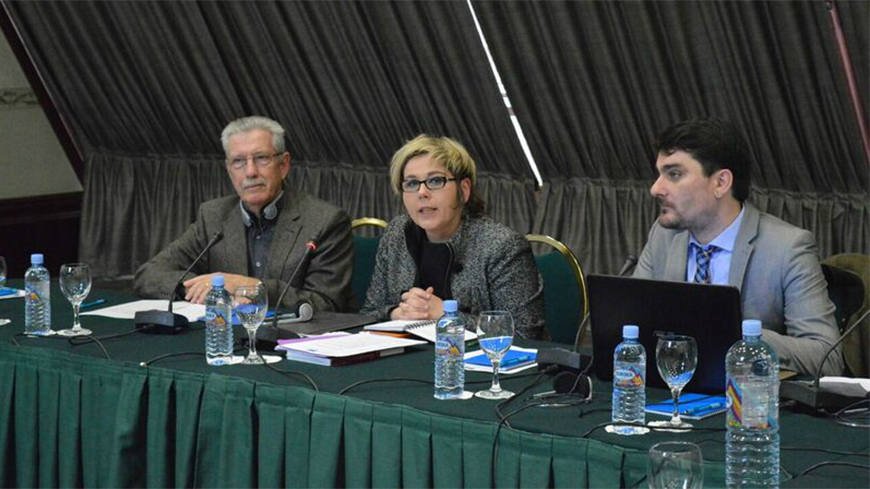A year ago, "the former Yugoslav Republic of Macedonia" entered a new political dynamic marked by openness and democratic dialogue between public authorities and independent civil society. The importance of this change is necessary not only for this country but also for democratic security throughout the Western Balkan region. The current political climate is marked by the political will of policymakers and NGOs to establish a strategic partnership.
The visit of the delegation of the Conference of INGOs to Skopje, which took place on 26-27 March 2018, focused on the participation of civil society in political decisions in the areas of public policies such as democracy and the rule of law, the fight against corruption, public administration reform, the fight against discrimination, social cohesion, education and youth. Meetings with Mr Damjan Mancevski, Minister of Information Society and Administration, Members of the Cabinet of the Minister of Justice, the Parliamentary Delegation chaired by Mr Shpresa Hadro, Head of Delegation at the Parliamentary Assembly of the Council of Europe, have made it possible to appreciate the dynamism with which public institutions engage at the highest level with civil society in the reforms and restructuring of public policies. The meeting with the Defender of Rights, Mr. Ixhet Memeti, highlighted the need to strengthen independent human rights institutions and the impact of institutional dialogue with Parliament on the effectiveness of the rule of law. This dialogue was significantly strengthened after the last elections. The delegation was accompanied by two interpreters allowing the host institutions to conduct the meetings in both official languages of the country.
The country's NGOs are real agents of change, and the government faces a resonant and knowledgeable civil society which is demanding rigor and effectiveness of the democratic system. This potential cannot be lost and must also be supported by international institutions.
To carry out this process, we invite the authorities to systematize and structure civil participation, to make it regular, using the methodology corresponding to international standards (Council of Europe, Open Government Partnership). This is a democratic issue to be addressed in the near future. Strengthening democratic institutions must be done with civil society. All public institutions must ensure equitable participation of NGOs that can only be achieved through transparency and lack of selectivity in the choice of those whom the authorities invite around the table.
The delegation of the Conference of INGOs congratulates the government of "the former Yugoslav Republic of Macedonia" for all the reforms undertaken, especially those that strengthen the effectiveness of human rights and that engage all democratic actors to intensify the awareness campaign to respect diverse and vulnerable groups, especially LGBTI communities, which suffered multiple attacks under the previous government.
The Conference of INGOs would like to thank the Minister of Foreign Affairs, the Permanent Representation to the Council of Europe and the Institute of European Policy for their assistance in the preparation of this visit. The resulting report will provide more information that will be brought to the attention of public authorities, NGOs and the Conference of INGOs itself.



